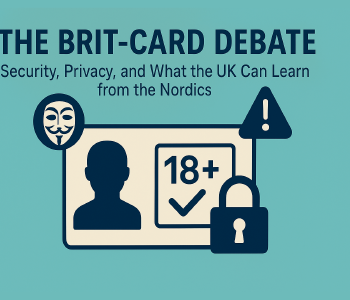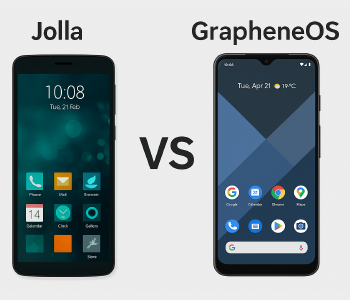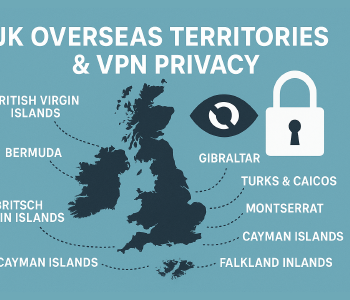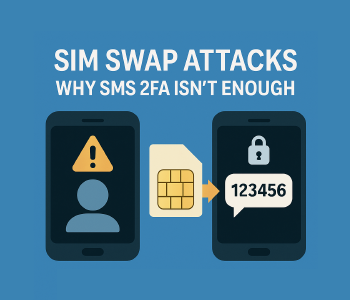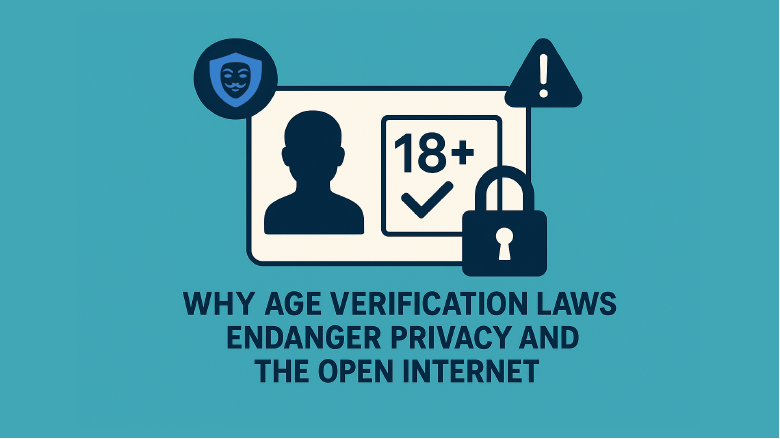
A Risky New Reality for UK Internet Users
This week, things just got more invasive online for people in the UK. A new law now forces anyone who wants to access porn sites to prove they’re over 18 — not with a checkbox, but with something far more personal. That might mean uploading a photo ID, verifying a credit card, or even scanning your face.
It’s meant to protect kids. But it comes at a high cost — and not just for people visiting adult sites. This move chips away at the basic principles of a free and open internet. It normalizes mass identity checks for browsing, adds major new risks for your private data, and could easily be expanded to other “sensitive” topics.
Why Privacy Advocates Are Worried
I’m someone who takes digital privacy seriously. I run a hardened operating system on my phone (GrapheneOS), split my browsing across different profiles, use a VPN 24/7, and pay to have my personal information removed from data brokers.
Not because I’m hiding anything — but because I want control over who knows what about my life. This law flips that on its head. Now, in order to view legal content, we’re expected to hand over our ID.
That’s like being stopped at the door of a bookstore and asked what you’re planning to read. It’s invasive. It’s unnecessary. And it should worry anyone who values digital rights — whether or not they ever visit a porn site.
Say Goodbye to Anonymity
The biggest hit here is online anonymity. These checks don’t just confirm your age. They link your identity to the content you’re viewing.
Suddenly, it’s possible for databases to record who visited which adult sites and when. That’s private, personal info — and a goldmine for hackers, blackmailers, and even governments. All it takes is one breach or misuse, and your name could be tied to sensitive content you thought was anonymous.
Sensitive Data, Huge Risks
To meet the UK’s age-check rules, websites will have to collect things like passport scans, credit card details, or facial recognition data. That’s a lot of personal info, and once it’s stored, it becomes a target.
No system is unhackable. And some age verification companies have already been breached. Even if the tech works perfectly, who owns the data? Who gets to see it? Could it be sold or subpoenaed?
The risks here aren’t hypothetical. They’re real — and they’re serious. As one privacy watchdog put it, this policy creates “a surveillance system disguised as a safety measure.”
A Chilling Effect on the Open Web
This law doesn’t just affect adult sites. It could change how all kinds of websites operate. Under the UK’s broader Online Safety Act, other types of “harmful” content — like discussions around self-harm, eating disorders, or even pranks — could fall under similar ID checks.
That means smaller websites and forums might just block UK users entirely, rather than deal with the hassle and liability. Some already have. Even Reddit and Discord are scrambling to restrict NSFW content for UK users.
We’re watching the internet fracture — not by language or culture, but by government policy. That’s a huge step backward for global connectivity and freedom of expression.
Kids Will Work Around It. Adults Pay the Price.
The evidence speaks for itself as to the harm caused by internet pornography, particularly to those exposed at a young age. When I was growing up it was swapped via cd-r in the playground and p2p networks, stolen from newsagents or rented by unscrupulous video store owners. It left a legacy of damage and pornography hasn’t gotten any softer. A concerted effort is needed to address the harm it can and does cause. Here at anonymousvpns.com we’re not even opposed in principle to the idea of age gating content but this is not the way.
Let’s be real: teens who really want to access porn will find a way. VPNs, proxies, overseas mirror sites — these tools aren’t hard to use. And many kids already know about them and use them for torrenting. And there is a lot of porn on the torrent sites. And this law wont even begin to touch newer issues like deepfake pornography distributed via social media sites or messaging apps.
So what does this law really do? It blocks casual access, yes. But mostly, it forces law-abiding adults to give up their privacy for a system that determined minors can sidestep.
It also risks giving parents and lawmakers a false sense of security. If we think the tech has “fixed” the problem, we might stop doing the harder work — like teaching digital literacy, using parental controls, and actually talking to kids about sex and safety online.
There Are Better Ways to Protect Kids
Age verification doesn’t have to mean identity verification. There are privacy-friendly solutions in the works — like anonymous credential systems or “zero knowledge proofs” that let you prove you’re over 18 without sharing your name or ID.
France has even piloted a model where a trusted third-party confirms your age, without the porn site ever knowing who you are. It’s not perfect, but it’s several steps in the right direction by contrast to the UK favoured approach.
And then there are non-technical tools: filters that parents can turn on at the device level, safer content defaults for younger users, and better education about online risks. None of these are full proof but there is simply no silver bullet short of unplugging your router.
None of these require a mass surveillance dragnet. And they all treat privacy like something worth keeping.
Don’t Let This Become the New Normal
The scariest part? This law could set a precedent. Today it’s porn. Tomorrow it could be online dating, political forums, or anything else someone decides kids shouldn’t see.
Once you build the infrastructure to track who visits what online, it’s easy to expand it. And history shows that once surveillance tools exist, they tend to stick around — and grow rather than retreat.
We should be pushing back hard against that idea. Privacy isn’t some fringe concern — it’s a cornerstone of democracy, free thought, and personal freedom.
The Bottom Line
The UK’s new porn ID law is a privacy disaster dressed up as a safety fix. It creates huge risks, punishes everyday users, and threatens the open internet — all while offering a questionable benefit.
We need better laws. Smarter tools. Real conversations with kids. And a hard line on protecting adult privacy.
If you care about keeping the internet open and free, now’s the time to speak up.
What You Can Do
- Support digital rights groups challenging the law
- Write to your MP and explain the risks
- Share this article and start conversations
- If you’re a parent, use real tools — not just legal ones — to guide your kids online
Privacy is worth defending. And it starts by refusing to normalize mass ID checks for reading, watching, or exploring online.



